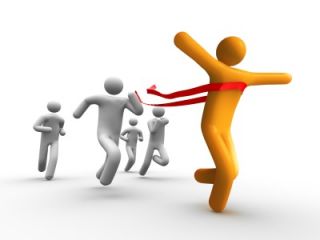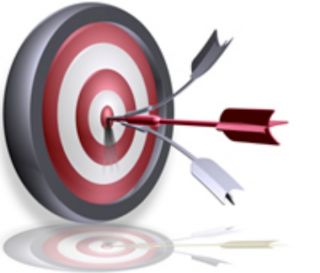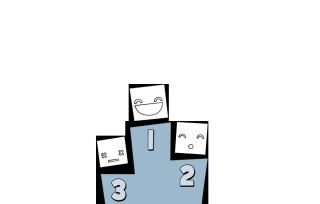Sport and Competition
5 Winning Ways and How to Make Them Work for You
Give yourself the psychological edge, no matter what the competition
Posted July 17, 2012

Competition is an intrinsic part of our daily lives. Whether it’s an online Words with Friends match with your closest pal or a race to the finish in a 5K marathon race, many of us like the thrill of seeking a win. Even if you don’t think of yourself as particularly competition-oriented, the chances are that if you examine your daily behavior, you’ll find that you compete a good deal more than you may realize. Perhaps you try to see if you can be the first in line for movie tickets, or the first to sign up for a limited time offer. Maybe you even just enjoy the little thrill of beating out the car next to you as you break away from an intersection or the first to cross the street among a pack of pedestrians. Competition doesn’t have to have a capital “C” to qualify as a form of pitting yourself against someone else or, even, your own self.
Unfortunately, for many people the thrill of competition is equaled only by the agony of possible defeat. Instead of enjoying the rush of trying to beat an opponent, they become overpowered by the fear of coming in second, third, or last. When placed in a competitive situation that they can’t avoid, such as having to try out for a new job or even a neighborhood softball game, they experience anxiety, worry, and self-doubt. As a result of experiencing these emotions, they find it difficult to perform to their maximum, and therefore confirm their worst fears—that they can never win.
You're probably familiar with the fact that even superstar athletes and musicians can experience crippling performance anxiety. Not everyone feels this way. Some performers relish the thrill of being on stage or on the playing field. Still others feel a complex mix of emotions. The successful performers know that they have to use their emotions to their advantage, or their career is doomed.
A team of French researchers headed by Guilluame Martinent at the University of Lyon decided to explore the complex feelings that people feel when they enter into competitive sports. They interviewed a highly elite group of 11 French male table-tennis players who were recorded onto video while playing during a match. The interviews took place soon after the matches while the players watched themselves on the video. This method allowed the researchers to find out how the players felt at each point in the game. As a result, the researchers didn’t have to rely on memory, which is notoriously unreliable when emotions are involved. They could also assess emotions throughout the match, not just at one point. In their analyses, they compared "single point" emotions (experienced at one time) with "multiple point" emotions, those that carried over two or more exchanges of points.
Although we typically think of emotions as occuring one by one, Martinent and his team believed that people can experience more than one emotion at a time. Your emotional experience, in other words, is a blend of all the feelings that rush through you at once in any given situation. Many people experience anxiety before they enter a competition, but this doesn’t mean that they can’t also feel hope, joy, and pleasure. To psych themselves up, some competitors trash talk their opponents, and in the process build up their feelings of anger. Competitors may also feel anger toward themselves. It’s the feeling you have when you internally curse yourself for a careless mistake that causes you to lose a game, or worse, be the “Charlie Brown” of your team and disappoint your teammates.
How you feel is important when you’re competing, but ultimately what really counts is whether your feelings help or hinder you. Will your anger toward your opponent weaken your performance, causing you to become irrational and sloppy? Alternatively, will anger fire you up and allow you to strike with fierce and unerring accuracy? We assume that anxiety is debilitating, but is too little going to lead you to rest on your laurels and lose due to lack of effort?
No matter how talented you are, it’s the emotions you feel during competition that will often make the differences between a win and a loss. All other things being equal, players who are in control of their emotions—the polished professionals—will be the ones to emerge as the victors. Outlandish, overly histrionic displays may sell game tickets, but they will make for erratic players who end up losing out when the championships medals (or cash) is awarded. They may also be more likely to be penalized for such unsportspersonlike actions as spiking the ball in U.S. football or performing an elaborate slam dunk in basketball while hanging off the hoop.

The players in the Martinent study experienced not 1, not 2, and not even 3—but a total of 12 different emotions during the course of their table-tennis match. These emotions covered the gamut from the negative feelings of anxiety and anger to the positive sense of joy and even serenity. Of all 12 emotions, the players were most likely to experience self-directed anger. If you’ve ever played even a casual game of table tennis, this is understandable. That little white plastic orb goes shooting past you, and as you helplessly wave your paddle, all you can think of is how frustrated you are that you couldn’t reach it in time. The players weren’t mad at the ball or the paddle (“thing-oriented anger”); they were mad at themselves. However, closely behind self-rated anger was the positive emotion of joy. It’s that wonderful elation you feel when you see that little ball go sailing past your opponent who now is the one helplessly swinging the paddle in the empty air.
When looked at over the course of more than one exchange of points, the players were also likely to experience a blend of emotions rather than just one at a time. These combinations included a blend of two emotions such as self-oriented anger and disappointment, discouragement and disgust, and self-oriented anger and anxiety. Some players felt as many as four emotions over the course of two or more shot exchanges. Clearly, the experience of playing a highly competitive sport brings out a complex array of emotional reactions.
Not all emotions are equal in helping our hindering your ability to compete. In the Martinent study, many players actually felt that they could ignore their emotional reactions at any one point in time while they focused on the shot. The players were less able to cope with their negative emotions when these persisted over the course of several shots within the game, however: 34% said that their emotions helped them perform better. In twice as many cases, though, the players felt that their emotions detracted from their ability to score. The most helpful emotions were serenity, hope, and joy and the most debilitating were discouragement and self-directed anger that persisted over multiple points. The emotions of relief, pride, and disappointment had no effect on performance. Depending on the situation, the players felt that the negative emotions of anxiety and self-directed anger (over a single missed point) could help or hinder their performance.
This study highlights the complexity of our emotional reactions over the course of a competitive situation. It also shows that it’s important to monitor your own emotions. You can get angry or anxious if things aren’t going your way, but if you become preoccupied with these negative emotions, you’ll eventually implode and your performance will suffer.

How can you learn to use your emotions to help give you the competitive edge? University of Hull psychologist Adam Nicholls and collaborators studied the emotional reactions of over 550 competitive athletes before and after a game as well as the ways that the athletes coped with their emotions. The key finding from this study was not just how the athletes felt, but what they did to use their emotions to help them feel better about their performance. By perceiving the situation as a challenge rather than as a threat, they could muster their emotional resources and focus on the game. Negative emotions, in contrast, led them to use several coping methods that caused them to feel that their performance deteriorated. These coping methods included giving up, venting their anger, and mentally distracting themselves from the game.
In summary, to succeed in competition, in whatever form you encounter it, you can benefit from these 5 strategies:
- View the situation as a challenge, not a threat. Half the battle in a competition is viewing the situation in a positive light. As the Nicholls study showed, anxiety is a matter of how you appraise the competition. Seeing the situation as a challenge will help you dial up your excitement and dial down your anxiety.
- Think, don’t feel. The most successful table-tennis players were able to get through their game without letting their emotions get in their way. During a competition, the more you focus on your feelings, good or bad, the less you’ll be able to focus your physical and mental energy on what you need to do to win.
- Let go of your mistakes. You can’t always stop yourself from feeling angry at your errors. However, you need to get past that anger and frustration as soon as you can. Use your mental energy to take that next shot, make the next winning move, or go on to that next note in your performance.
- Take advantage of positive coping methods.There’s no one best coping method for every situation. However, in competitions, you’re better off engaging the coping methods that help you focus on the task rather than on your feelings of disappointment or frustration.These positive coping methods include imagining yourself as successful, relaxing, and mobilizing your mental and physical resources. At times, you may benefit from seeking social support from the people closest to you.
- Enjoy your successes and learn from your failures. You’ve won, so savor the moment! Pride, joy, and serenity are emotions that benefit you both in the short- and long-term. If you lost out, analyze your performance objectively. You may be discouraged and frustrated, but to prepare yourself for the next competition, you need to analyze what you did wrong and try to fix it. If you did your best and simply lost out due to bad luck or being out-performed by a better player, don’t beat up on yourself. You may prefer getting the gold to the silver medal, but someone has to win, and if it's not you, feel happy for the person who did.
With these coping methods in your arsenal, you’ll not only be more likely to succeed, but feel better about the experience. Let the games begin!
Follow me on Twitter @swhitbo for daily updates on psychology, health, andaging. Feel free to join my Facebook group, "Fulfillment at Any Age," to discuss today's blog, or to ask further questions about this posting.
Copyright Susan Krauss Whitbourne 2012
References:
Martinent, G., Campo, M., & Ferrand, C. (2012). A descriptive study of emotional process during competition: Nature, frequency, direction, duration and co-occurrence of discrete emotions.Psychology of Sport and Exercise, 13(2), 142-151. doi:10.1016/j.psychsport.2011.10.006
Nicholls, A. R., Polman, R. J., & Levy, A. R. (2012). A path analysis of stress appraisals, emotions, coping, and performance satisfaction among athletes. Psychology of Sport and Exercise, 13(3), 263-270. doi:10.1016/j.psychsport.2011.12.003




